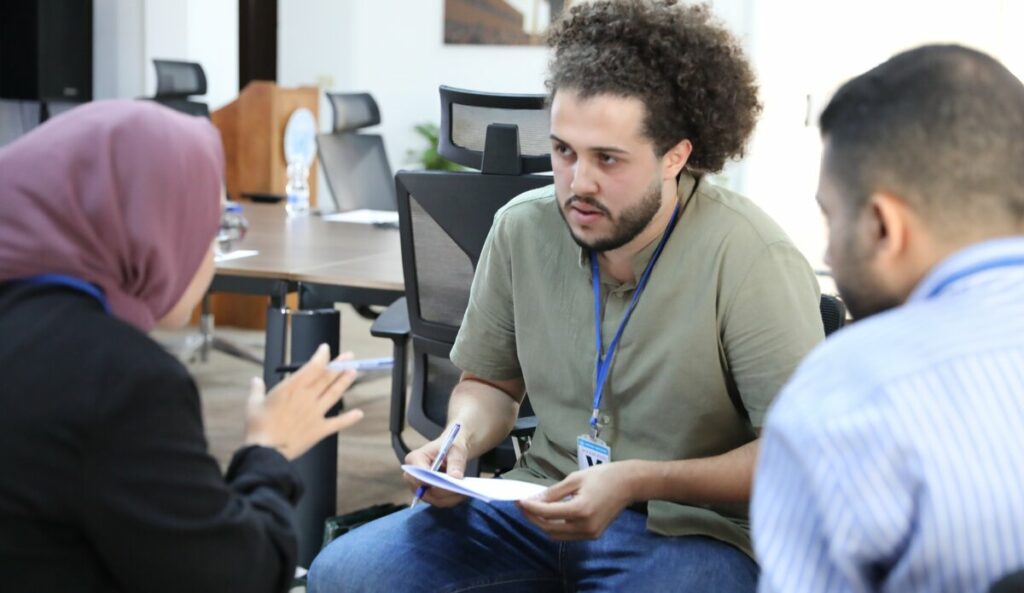
TRIPOLI, Libya, 25 Septembre 2024 -/African Media Agency(AMA)/- As Heads of State met in New York to attend the Summit for the Future and sign the global Pact for the Future, UNSMIL held two youth workshops with 40 young men and women to discuss how the Libyan government, society and media companies could foster a safer and inclusive digital space for citizens, and how digital tools could be used to improve the political process for all.
Digital technologies are dramatically transforming the world and political engagement. They offer immense potential benefits for the wellbeing and advancement of people, societies, and for our planet as well as holding out the promise of achieving the Sustainable Development Goals. Equally, the misuse and missed use of digital technologies causes harm. The workshops focused on how Libya could harness the opportunities of digital technologies, and what could be done to reduce their potential harms.
“Digital platforms cannot currently be utilized to have an inclusive political process in Libya,” said one participant. “It is unsafe. Platforms are utilized in a negative manner sometimes by state institutions,” they added.
All participants agreed that Libya currently did not have the infrastructure to implement an inclusive digital agenda. They also highlighted that for many people it wasn’t safe to speak openly on some topics, citing examples of arbitrary detention. It was highlighted that women particularly receive a lot of hate speech online, and therefore they often do not engage in digital spaces to avoid this.
To improve the situation, the young men and women in the workshops made the following recommendations:
Establish an independent, neutral and transparent, regulatory body to oversee the digital space in Libya, set laws and regulations and ensure that those operating in these spaces abide by those rules.
Update legislation to protect people’s privacy, reduce cybercrime and improve cyber security.
Develop awareness campaigns to improve understanding of hate speech, reporting it and the importance of equality and protecting inclusive digital spaces. These campaigns and dialogue sessions should be targeted at school children, university students, youth councils and municipality leaders.
Update the curriculum in schools to include understanding the digital space, critical analysis, misinformation, disinformation and ethics.
Raise awareness about fact checking organisations, and empower and fund them to work together while remaining independent of government.
Develop digital capabilities within government institutions to use tools such as anonymous online petitions and polls, so that more citizens can engage in the democratic process.
The UN should utilize digital spaces to develop online debates and bring youth activists together regionally to share skills and breakdown political barriers.
Implement a digital voting system for elections.
Invest in digital infrastructure across the whole country to ensure all communities have access to the internet.
Develop communication campaigns around the role of women in society and the workplace, showcasing their positive impact on society.
Support journalists to develop a code of conduct around reporting misinformation and develop the sector to ensure a free and independent media.
Ensure social media companies verify users through identity checks and apply better controls to reduce hate speech and misinformation, and remove fake accounts.
The Summit for the Future is a high-level event held in New York bringing world leaders together to forge a new international consensus on how the international community delivers a better present and safeguards the future, including a global digital compact.
“Libyan youth should be the bridge that unites and connects the east and the west and overcomes barriers,” said one participant adding that “while older members of society often have political affiliations, youth tend to be neutral and wanted to work together to build a better future.”
Distributed by African Media Agency on behalf on UNSMIL.

